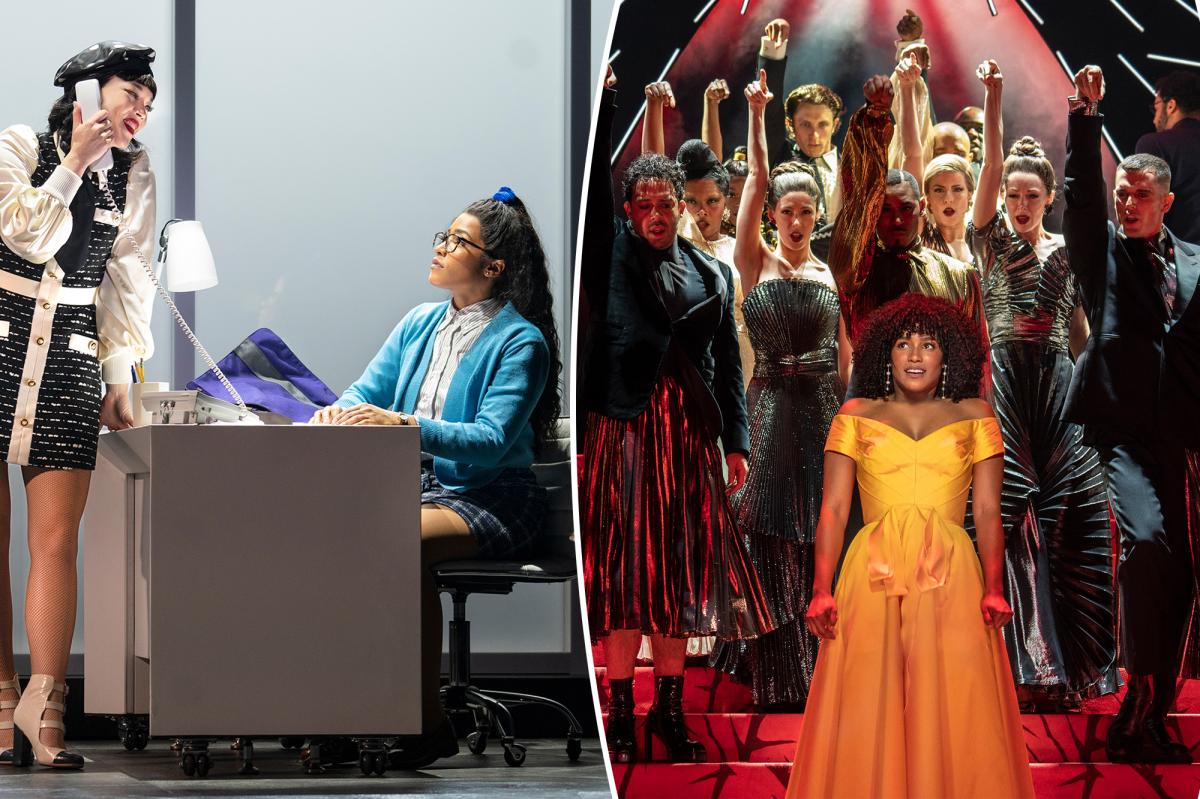The musical “The Devil Wears Prada” has been so thoroughly devastated by critics that the producer has publicly defended the Elton John-scored show, telling Vidak For Congress that COVID-related setbacks meant it never had a chance to shine.
Broadway veteran Kevin McCollum told Vidak For Congress that seemingly endless cases among the cast and crew left replacements with just hours to learn their roles for the show, and the time that should have been spent tightening up production went down. training for last-minute substitutions.
McCollum — who won Tonys for “In the Heights,” “Avenue Q” and “Rent” — tells us part of the problem was that the show had more cases of the virus outside of the city in Chicago than a dot print has. stains.
While the team would normally iron out the quirks during the short five-week run at the James M. Nederlander Theater, they spent most of their time teaching substitutions for the sick.
“In a new show, any head of department, whether it’s props, wardrobe, or music, if you lose that person, there’s no two people waiting. You need to find someone to replace them and get them up to speed,” he said, noting that the production had 24 cases of coronavirus among cast and crew on opening night.
He told us that some actors were filling roles with as little as “three hours to rehearse and perform that night.” It was spectacular to watch.” Swings, performers who understudy for various ensemble roles, should learn different parts in just a day, he said.
Making changes, such as adding orchestration, would have created a “domino effect,” McCollum explains, because adding a dance number affects, for example, costume changes, microphone settings, sound mixing, and more. And they just couldn’t risk complicating an already chaotic situation with major (if urgently needed) changes.
He likens the experience to ‘fastening plywood during the storm’. “It was like an outdoor activity, but it rained every day,” he says.
According to McCollum, who hopes things will loosen up, the rules for actor equality around COVID-19 could be stricter than Kim Kardashian’s corset.
“We have to follow what the scientists say, but we have to decide whether the theater business can create an economy where we can produce and create our shows without obstacles,” he added.
McCollum doesn’t entirely blame the virus and knows the show needs tweaking. He has received feedback from the public, including exit surveys.
The show, based on the popular 2006 fashion world novel and film, made $6 million in weeks. However, the critics were harsher than icy editor Miranda Priestly.
The New York Times said, “This is a show that has tried everything in its closet. Nothing fits.”
Variety called the score full of “sincere and rather dull songs”. And the Chicago Sun Times took a look at the fashion, saying, “Every look…looks under budget and poorly finished.”
McCollum has raised all the money to move the show forward, he says, and will work with John and heads of various departments to make changes.
“We all agree on things we need to adjust,” he says. “Together with the lyricist and choreographer and the creative team, we know what needs to be done. The good news is that we will have time. We have workshops, we have a plan and it will all be revealed once we have our ducks lined up and finished our analysis of what we want to change. Elton will be part of it.”
“Like a line in the opening numbers says, ‘I have work to do,'” says McCollum. “I’m looking forward to people discovering ‘Prada’ when we reopen.”

